# 安装服务 yum -y install chrony # 查看状态 systemctl status chronyd # 重启chronyd systemctl restart chronyd
二、检查设置时区
# 查看时区 [root@x ~]# timedatectl Local time: Sun 2022-04-17 11:15:48 CST Universal time: Sun 2022-04-17 03:15:48 UTC RTC time: Sun 2022-04-17 11:15:48 Time zone: Asia/Shanghai (CST, +0800) NTP enabled: yes NTP synchronized: yes RTC in local TZ: yes DST active: n/a # 筛选式查看在亚洲S开的上海可用时区: [root@x ~]# timedatectl list-timezones | grep -E "Asia/S.\*" Asia/Sakhalin Asia/Samarkand Asia/Seoul Asia/Shanghai Asia/Singapore Asia/Srednekolymsk # 设置当前系统为Asia/Shanghai上海时区: [root@x ~]# timedatectl set-timezone Asia/Shanghai # 修改日期时间(可选,主节时钟源无法同步,可以先关闭NTP同步) timedatectl set-ntp false timedatectl set-time "2022-04-17 15:50:20" # 开启 NTP timedatectl set-ntp true #设置完时区后,强制同步下系统时钟: [root@x ~]# chronyc -a makestep 200 OK
三、防火墙设置
# 查看防火墙状态 [root@x ~]# systemctl status firewalld.service ● firewalld.service - firewalld - dynamic firewall daemon Loaded: loaded (/usr/lib/systemd/system/firewalld.service; disabled; vendor preset: enabled) Active: inactive (dead) Docs: man:firewalld(1) # 启动防火墙 [root@x ~]# systemctl start firewalld.service # 防火墙内放行NTP服务 [root@x ~]# firewall-cmd --add-service=ntp --permanent success # reload才能生效 [root@x ~]# firewall-cmd --reload success
[root@x ~]# systemctl stop firewalld [root@x ~]# systemctl disalbe firewalld
四、配置Chrony
1.服务器端配置
ntp1.aliyun.com 授时中心参考 210.72.145.44 国家授时中心 ntp.aliyun.com 阿里云 s1a.time.edu.cn 北京邮电大学 s1b.time.edu.cn 清华大学 s1c.time.edu.cn 北京大学 s1d.time.edu.cn 东南大学 s1e.time.edu.cn 清华大学 s2a.time.edu.cn 清华大学 s2b.time.edu.cn 清华大学 s2c.time.edu.cn 北京邮电大学 s2d.time.edu.cn 西南地区网络中心 s2e.time.edu.cn 西北地区网络中心 s2f.time.edu.cn 东北地区网络中心 s2g.time.edu.cn 华东南地区网络中心 s2h.time.edu.cn 四川大学网络管理中心 s2j.time.edu.cn 大连理工大学网络中心 s2k.time.edu.cn CERNET桂林主节点 s2m.time.edu.cn 北京大学 ntp.sjtu.edu.cn 202.120.2.101 上海交通大学
server ntp1.aliyun.com iburst allow 172.16.24.0/24 local stratum 10
[root@master01 ~]# vim /etc/chrony.conf
# Use public servers from the pool.ntp.org project. # Please consider joining the pool (http://www.pool.ntp.org/join.html). # server 0.centos.pool.ntp.org iburst # server 1.centos.pool.ntp.org iburst # server 2.centos.pool.ntp.org iburst #server 3.centos.pool.ntp.org iburst # 公网时间服务器 server ntp1.aliyun.com iburst # Record the rate at which the system clock gains/losses time. driftfile /var/lib/chrony/drift # Allow the system clock to be stepped in the first three updates # if its offset is larger than 1 second. makestep 1.0 3 # Enable kernel synchronization of the real-time clock (RTC). rtcsync # Enable hardware timestamping on all interfaces that support it. #hwtimestamp \* # Increase the minimum number of selectable sources required to adjust # the system clock. #minsources 2 # Allow NTP client access from local network. # 指定一台主机、子网,或者网络以允许或拒绝访问本服务器 allow 172.16.24.0/24 # Serve time even if not synchronized to a time source. # 即使server指令中时间服务器不可用,也允许将本地时间作为标准时间授时给其它客户端chronyc命令 local stratum 10 # Specify file containing keys for NTP authentication. #keyfile /etc/chrony.keys # Specify directory for log files. logdir /var/log/chrony # Select which information is logged. #log measurements statistics tracking
2.客户端节点配置
[root@worker01 ~]# vim /etc/chrony.conf
# Use public servers from the pool.ntp.org project. # Please consider joining the pool (http://www.pool.ntp.org/join.html). # server 0.centos.pool.ntp.org iburst # server 1.centos.pool.ntp.org iburst # server 2.centos.pool.ntp.org iburst #server 3.centos.pool.ntp.org iburst # 内网时钟服务端 server master01 iburst # Record the rate at which the system clock gains/losses time. driftfile /var/lib/chrony/drift # Allow the system clock to be stepped in the first three updates # if its offset is larger than 1 second. makestep 1.0 3 # Enable kernel synchronization of the real-time clock (RTC). rtcsync # Enable hardware timestamping on all interfaces that support it. #hwtimestamp \* # Increase the minimum number of selectable sources required to adjust # the system clock. #minsources 2 # Allow NTP client access from local network. #allow 192.168.0.0/16 # Serve time even if not synchronized to a time source. #local stratum 10 # Specify file containing keys for NTP authentication. #keyfile /etc/chrony.keys # Specify directory for log files. logdir /var/log/chrony # Select which information is logged. #log measurements statistics tracking
3.配置文件说明:
/etc/chrony.conf
server
可用于时钟服务器,iburst 选项当服务器可达时,发送一个八个数据包而不是通常的一个数据包。 包间隔通常为2秒,可加快初始同步速度,这个可以添加外网服务器或者内网服务器,域名或者IP都可以。
driftfile
根据实际时间计算出计算机增减时间的比率,将它记录到一个文件中,会在重启后为系统时钟作出补偿
stratumweight
stratumweight指令设置当chronyd从可用源中选择同步源时,每个层应该添加多少距离到同步距离。默认情况下,CentOS中设置为0,让chronyd在选择源时忽略源的层级。
rtcsync
启用内核模式,系统时间每11分钟会拷贝到实时时钟(RTC)
allow / deny
指定一台主机、子网,或者网络以允许或拒绝访问本服务器
cmdallow / cmddeny
可以指定哪台主机可以通过chronyd使用控制命令
bindcmdaddress
允许chronyd监听哪个接口来接收由chronyc执行的命令
makestep
通常chronyd将根据需求通过减慢或加速时钟,使得系统逐步纠正所有时间偏差。在某些特定情况下,系统时钟可能会漂移过快,导致该调整过程消耗很长的时间来纠正系统时钟。该指令强制chronyd在调整期大于某个阀值时调整系统时钟
local stratum 10
即使server指令中时间服务器不可用,也允许将本地时间作为标准时间授时给其它客户端chronyc命令
四、启动chrony服务
# 设置开机启动 [root@x~]# systemctl enable chronyd.service # 重启服务 [root@x~]# systemctl restart chronyd.service # 查看时间同步状态 [root@x~]# timedatectl status # 手动强制同步下系统时钟 [root@x~]# chronyc -a makestep # 查看时间同步源 [root@x~]# chronyc sources -v # 查看时间同步源状态 [root@x~]# chronyc sourcestats -v # 硬件时间默认为UTC [root@x~]# timedatectl set-local-rtc 1 # 启用NTP时间同步 [root@x~]# timedatectl set-ntp yes
五、chronyc相关命令
help 命令可以查看更多chronyc的交互命令
accheck 检查是否对特定主机可访问当前服务器
activity 显示有多少NTP源在线/离线
sources [-v] 显示当前时间源的同步信息
sourcestats [-v] 显示当前时间源的同步统计信息
add server 手动添加一台新的NTP服务器
clients 报告已访问本服务器的客户端列表
delete 手动移除NTP服务器或对等服务器
settime 手动设置守护进程时间
sracking 显示系统时间信息
chronyc sources 主要用于查看时钟源授时时间偏差值。
[root@iZbp1fy7y89tqjvmlp1dvhZ ~]# chronyc sources 210 Number of sources = 15 MS Name/IP address Stratum Poll Reach LastRx Last sample =============================================================================== ^+ 120.25.115.20 2 10 255 987 -982us[ -985us] +/- 15ms ^? 10.143.33.49 0 10 0 - +0ns[ +0ns] +/- 0ns ^+ 100.100.3.1 2 10 377 112 +126us[ +126us] +/- 1601us ^+ 100.100.3.2 2 10 377 258 -75us[ -75us] +/- 1738us ^+ 100.100.3.3 2 10 375 720 -191us[ -191us] +/- 1708us ^+ 203.107.6.88 2 10 377 344 +2988us[+2988us] +/- 18ms ^? 10.143.33.50 0 10 0 - +0ns[ +0ns] +/- 0ns ^? 10.143.33.51 0 10 0 - +0ns[ +0ns] +/- 0ns ^? 10.143.0.44 0 10 0 - +0ns[ +0ns] +/- 0ns ^? 10.143.0.45 0 10 0 - +0ns[ +0ns] +/- 0ns ^? 10.143.0.46 0 10 0 - +0ns[ +0ns] +/- 0ns ^+ 100.100.5.1 2 10 377 537 +324us[ +324us] +/- 1975us ^+ 100.100.5.2 2 10 377 269 -209us[ -209us] +/- 1946us ^+ 100.100.5.3 2 10 377 281 +126us[ +126us] +/- 2078us ^* 100.100.61.88 1 10 377 913 -465us[ -468us] +/- 11ms
chronyc sourcestats 主要偏移率及每个时钟源的偏移评估值:
[root@iZbp1fy7y89tqjvmlp1dvhZ ~]# chronyc sourcestats 210 Number of sources = 15 Name/IP Address NP NR Span Frequency Freq Skew Offset Std Dev ============================================================================== 120.25.115.20 37 15 12h -0.001 0.024 -216us 516us 10.143.33.49 0 0 0 +0.000 2000.000 +0ns 4000ms 100.100.3.1 26 18 431m -0.001 0.004 +94us 44us 100.100.3.2 22 12 362m +0.001 0.005 +5134ns 44us 100.100.3.3 17 9 362m -0.003 0.006 -236us 38us 203.107.6.88 64 32 18h +0.013 0.039 +553us 1730us 10.143.33.50 0 0 0 +0.000 2000.000 +0ns 4000ms 10.143.33.51 0 0 0 +0.000 2000.000 +0ns 4000ms 10.143.0.44 0 0 0 +0.000 2000.000 +0ns 4000ms 10.143.0.45 0 0 0 +0.000 2000.000 +0ns 4000ms 10.143.0.46 0 0 0 +0.000 2000.000 +0ns 4000ms 100.100.5.1 16 8 258m +0.001 0.009 +321us 44us 100.100.5.2 17 8 276m +0.001 0.007 -219us 35us 100.100.5.3 21 11 344m +0.001 0.006 +80us 48us 100.100.61.88 17 11 276m -0.001 0.009 -389us 39us

9us 35us
100.100.5.3 21 11 344m +0.001 0.006 +80us 48us
100.100.61.88 17 11 276m -0.001 0.009 -389us 39us
| 列名 | 含义 | | --- | --- | | Name/IP address | 表示源的名称或IP地址,或者参考时钟的refid值 | | NP | 这是当前为服务器保留的采样点数,通过这些点执行线性回归方法来估算出偏移值 | [外链图片转存中...(img-WJNzuxmw-1727248514732)] [外链图片转存中...(img-sozEjHiv-1727248514732)] [外链图片转存中...(img-qBbD3lld-1727248514733)] **既有适合小白学习的零基础资料,也有适合3年以上经验的小伙伴深入学习提升的进阶课程,涵盖了95%以上运维知识点,真正体系化!**
本文链接:https://blog.runxinyun.com/post/189.html 转载需授权!
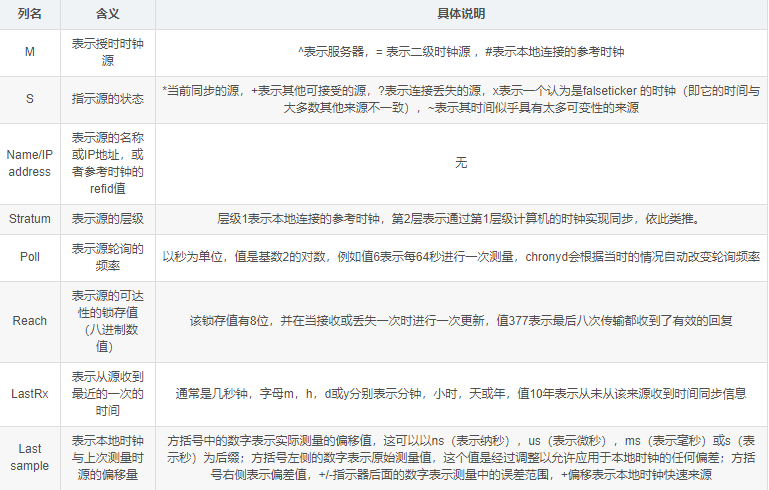

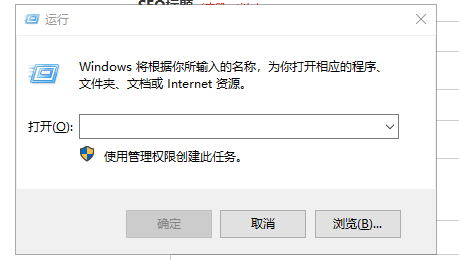

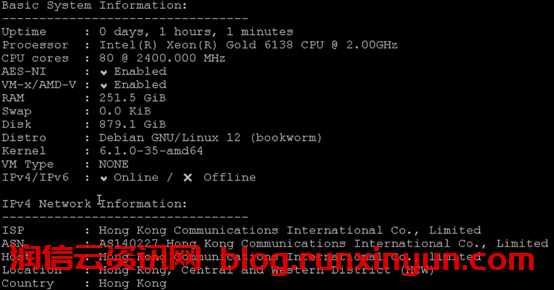

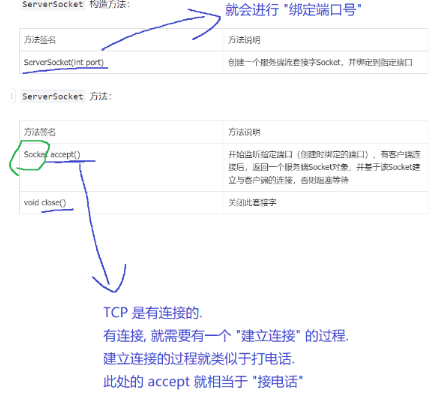


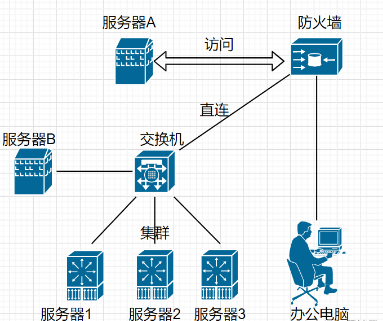













留言0